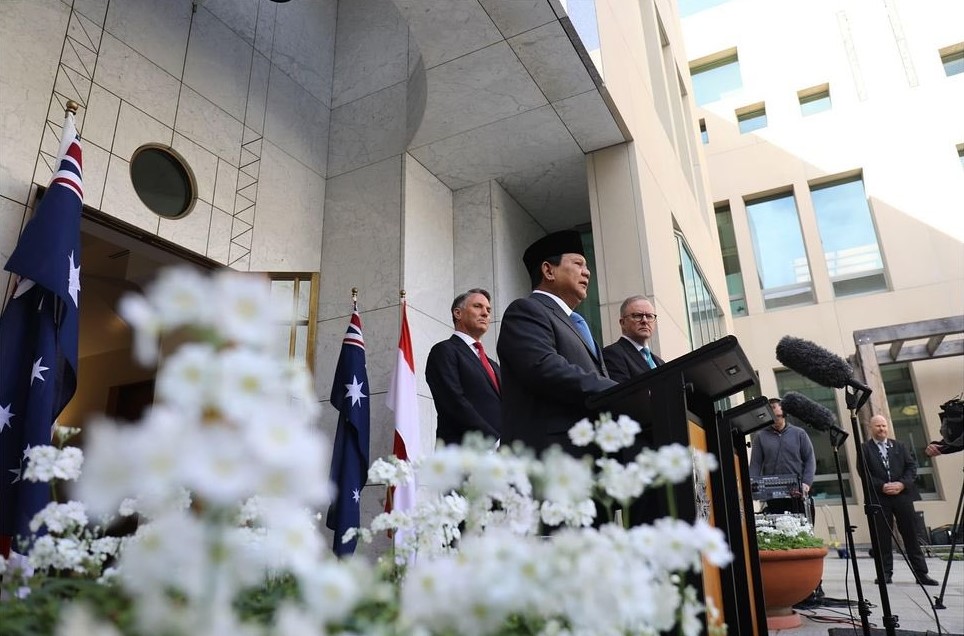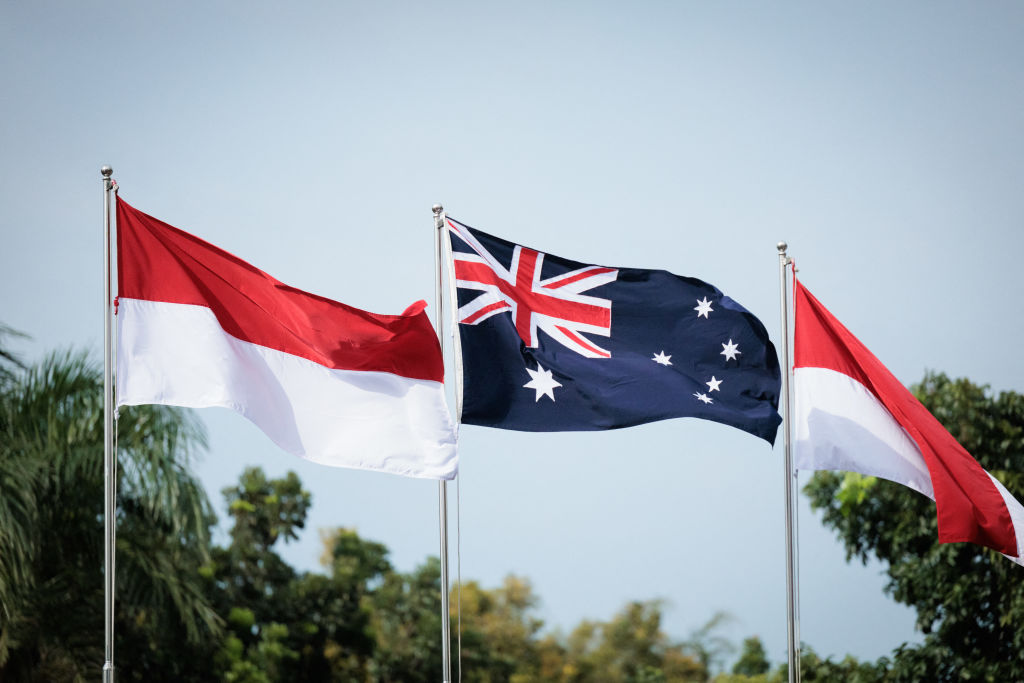Looking back
Unsurprisingly, there was much harking back to the glory days of 1945 when Australia marked 75 years of diplomatic relations with Indonesia this week with a new defence agreement.
Australia’s tendency to talk up government-to-government agreements more enthusiastically than Indonesian counterparts hints at an underlying nervousness.
The trade union and then Labor government support for Indonesia’s independence from Dutch colonialism has provided a solid foundation for official relations during most of those years, and this history does so again today.
But Australia’s tendency to talk up government-to-government agreements more enthusiastically than Indonesian counterparts hints at an underlying nervousness. That the intensity of the agreement signing side of the relationship is still not matched by the economic depth.
And so, Defence Minister Richard Marles declared the Defence Cooperation Agreement, concluded this week, to be “the deepest, the most significant agreement that our two countries have ever made”.
“And when you consider the journeys of Indonesia and Australia over the decades, it is profoundly historic that we have reached this moment where we find security in each other.”
However, his counterpart Defence Minister Prabowo Subianto – who is more importantly Indonesia’s president-elect – took a decidedly more rhetorical position while standing alongside Prime Minister Anthony Albanese in Canberra.
“We have had our ups and downs as the political situation and the geopolitical situation … evolved,” Prabowo said, “but I think we are very happy today to have several decades of very close cooperation … By tradition our people do not want us to be involved in any geopolitical or militarily aligned systematic groupings and I myself am determined to continue this policy.”

Despite being discouraged from visiting Australia during the long years he faced accusations of human rights violations, Prabowo seems to be exuding the diplomatic pragmatism towards the neighbour that was to be expected given his international education and his family’s three generations of involvement in Indonesian public life. As he said in Canberra on Tuesday:
“I will continue the general policies of President Joko Widodo in which Australia plays a very important role … In most fields, especially in the field of economics, we have had good cooperation.”
Mixed messages
That is the case at the macro-level, seen from the negotiation of a deeper economic cooperation agreement in 2020 than Australia has in other trade deals. It was also evident in the Albanese government’s support this year for Indonesia to join the Organisation for Economic Cooperation and Development.
But at the more practical level since the Albanese government took office, the economic situation is more mixed. Longstanding iconic Australian companies from the Commonwealth Bank to Ramsay Health Care to CBH/Interflour withdrawing or trying to withdraw from Indonesia. On the other side of the ledger, the creation of a new agribusiness supply chain connection by PT Pupuk Kalimantan Timur buying Incitec Pivot fertiliser business has not gone ahead.
And despite the government jawboning superannuation funds into visiting Indonesia to look at opportunities, there has been no obvious action on the front yet. The funds continue looking more towards London offices and responding to other Labor government financially underwritten initiatives closer to home, whether in energy transition or housing.
There is a tone of frustration entering the government’s messaging to local business.
While the government is talking up the prospects of energy transition cooperation under the new $2 billion Southeast Asia Investment Financing Facility (SEAIFF), the potentially relationship-transforming Sun Cable project to export solar power to Singapore via Indonesia is proceeding only slowly, despite winning approval for its domestic solar farm this week.
Indeed, the most striking bilateral energy interaction is more ironic. Some Indonesian tycoons have been quietly buying up the coal assets that are being offloaded by Australian-based interests wanting to reduce their exposure to fossil fuels. They seem set to run down the Australian coal assets via low key private equity vehicles, while Australia tries to fund energy transition projects via the SEAIFF.

One road, two vehicles
Since the 2022 enthusiasm for electric vehicle supply chain cooperation between Albanese and Widodo, there has been a little voiced, but obvious, failure of economic cooperation over any such supply chain. Indonesia has flooded the nickel market with Chinese financial support to Australia’s loss, while the Albanese government has persisted with its own battery manufacturing plans despite questions about whether they will be viable.
Despite this striking outbreak of modern-day resources competition when the 2020 trade agreement was all about economic complementarity, there are still plenty of cooperation possibilities if they can be catalysed.
Given Prabowo’s family built its wealth from various forms of resources nationalism over the years, and he promises to maintain his predecessor’s nationalistic economic policies, it remains to be seen whether this week’s defence cooperation provides any sort of new security blanket for facilitating the much sought economic ballast in the relationship. Indeed, Prabowo’s nominated fields for new cooperation this week were relatively narrow and idiosyncratic: agriculture, food security, narcotics control, and sport.
It will be interesting to see if a new Indonesian president more inclined to greater diplomatic activism will also shift the dial on bilateral commercial connections.
The rhetoric this week with a president-elect in town was not unreasonably all about the “deepest” and “most significant” cooperation. Nevertheless, there is a tone of frustration entering the government’s messaging to local business after sending superannuation funds to examine opportunities in the neighbours and launching initiatives such as the SEAIFF.
Foreign Minister Penny Wong used her Centre For Asian-Australian Leadership inaugural annual lecture this week to deliver another call to arms:
“Government can’t be the only driver of Australia’s Asia engagement and capability investment. We need to see much more from the private sector … Smart business will take the opportunities created by the (government) Strategy. Smart businesses will do more business in Southeast Asia. And smart businesses will see the advantage in Australia’s Asian diasporas.”
That follows her June speech to the Committee for the Economic Development of Australia: “Australian business knows the threat to our resilience of having too many eggs in one market. Our government’s initiatives are designed to make it easier for Australian business to get established in new markets. And now we are asking you to do just that. To create new value for your companies, and for your country.”
And here’s Trade Minister Don Farrell also in June: “I said to all of the companies from Australia that we have to be more ambitious in our engagement in Southeast Asia. There’s wonderful opportunities here – we need to take full advantage of them.”
This is a well-trodden road over more than half a century, as we have detailed here and here, and the government has some carefully considered initiatives. It will be interesting to see if a new Indonesian president more inclined to greater diplomatic activism will also shift the dial on bilateral commercial connections.

